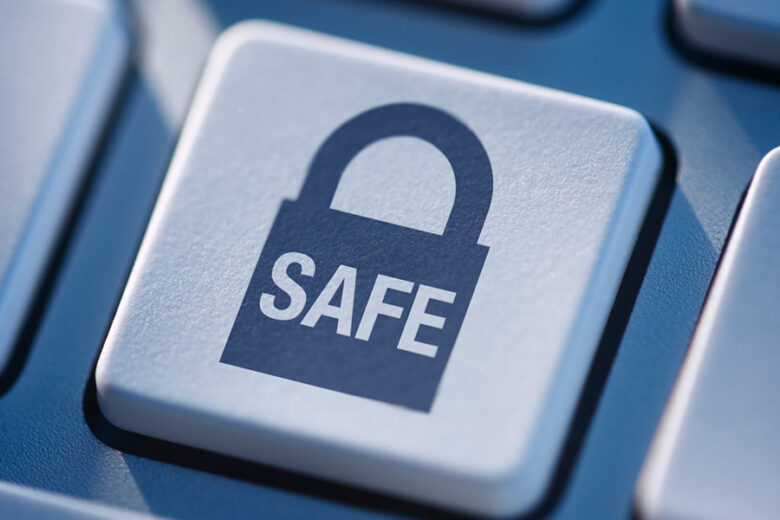Imagine discovering that malware has encrypted your files when you attempt to access them. To prevent such an unexpected turn of events from unfolding, regularly back up your data and ensure your computers, tablets, cell phones, and smartwatches are safe from such potential risks. Smart tech measures such as using strong passwords, browsing securely, and avoiding geotagging can lower the risk of cyberattacks and identity theft. Here are 10 Crucial Tech Tips for Staying Safe Online.
1. Keep Your Software Updated
Cybercriminals, malware, and viruses use vulnerabilities in software to exploit its weaknesses and gain entry to devices. Software developers release updates to close these holes, so it is imperative that devices stay updated. Outdated software can give hackers easy access to your personal information and sensitive files—as evidenced by recent incidents like the Equifax data breach and WannaCry ransomware attacks. Ignoring software updates could prove fatal.
Always follow instructions when downloading software updates—such as setting your device to update automatically or making sure a backup exists before installing major upgrades—from pop-up ads or emails, and always take precautions, such as backing up before making major installations.
2. Beware of Fake Social Media Profiles
Even with strict privacy settings in place, hackers still have the potential to gather sensitive personal data from social media platforms and post it online—potentially making retrieving it hard or impossible. Some fake profiles are used to pose as public figures, businesses, or even friends; others can be used for grooming, phishing, trolling, or spreading false information.
Check for red flags such as incomplete profile information and suspicious behavior. Pay special attention to engagement patterns—any account buying engagement (likes and followers) could be fake; usernames with random letters/numbers in them could also provide clues.
3. Check the Site’s Address
While the internet offers a wealth of knowledge and entertainment, it also presents several potential dangers. Boston University suggests checking your browser’s uniform resource locator (URL) field regularly to make sure that the website you are on is a secure one; secure websites typically feature URLs starting with “https” and including a lock icon indicating encryption is being used between your browser and the site for protecting identity thieves from intercepting your data. Also pay attention for any misspellings or incorrect grammar in a URL, as these could indicate imposters who could attempt to fool people.
4. Don’t Download Apps or Documents
Understanding the risks that exist online can be invaluable when it comes to education, but you need to be wary of careless Internet habits, which could result in identity theft, cyberattacks, or even physical injury at the hands of unknown perpetrators. Harassment via email, text messaging, and social media games is harmful for both young and old alike, so it is crucial that parents teach their children basic Internet safety rules and monitor their technology use.
Apps and documents you download could contain malware, often without you knowing. Drive-by downloads may appear as legitimate web page content but may actually install software without your knowledge.
5. Use Privacy Settings on All Your Devices
Each computer, tablet, and mobile device comes equipped with security and privacy settings that can be tailored by its owner to control who can see your personal data, such as posts on social media platforms or posts from friends/colleagues. These settings enable users to safeguard personal information such as posts about themselves or data such as messages.
Encryption can make it harder for hackers to gain access to your personal data on devices, apps, and hard drives. Always read privacy policies of websites and apps you visit—even with privacy settings turned on, hackers and website administrators could still gain access to some or all of your information online.
6. Stay Aware of Online Threats
October is Cybersecurity Awareness Month, and it is crucial that individuals remain alert to online threats such as phishing attacks, data breaches, malware, and ransomware. Avoid shopping or entering personal data such as credit card numbers or bank account details on websites that don’t use https and feature a padlock icon to encrypt it.
Be wary of spam emails, “free” offers, clickbait articles, and online quizzes that appear legitimate and could inadvertently expose your private data or infect your device with malware. A careless click could compromise both your privacy and safety online—using these simple safety tips can make a positive difference for both.
7. Be Careful with Your Passwords
Passwords are a critical element of online security. They protect information and devices from unapproved access and may help deter identity theft. Strong passwords should be long and complex, with uppercase letters mixed in with numbers and symbols; each account should use its own set to limit any potential breaches from impacting multiple accounts simultaneously.
Storing passwords safely is essential, and using an effective password management tool is one way to do just that. Furthermore, changing them regularly on devices not monitored by abusive individuals may prove invaluable.
8. Be Wary of Malware
In today’s digitally connected world, it is increasingly essential to understand how cyberattacks work and how to defend against them. This requires keeping security software updated, backing up data regularly, exercising caution when clicking links or downloading attachments, and learning to identify phishing emails.
Cybercriminals’ primary goal is to persuade users into downloading malware that opens a backdoor onto their device and collects information, according to PCWorld. Malware could come disguised as anything from popular games to traffic or weather apps; signs that your device might have been infiltrated with it include system slowdown, crashes, and an abundance of pop-up ads.
9. Keep Your Mobile Devices Secure
Cyber attacks often target mobile devices. From personal details to confidential work files, mobile phones contain valuable data, which, if compromised, could result in identity theft, data breaches, and financial losses.
Utilizing software with full-disk encryption ensures that any data stored on your smartphone or tablet cannot be accessed by untrustworthy individuals even if lost or stolen and also provides lock screen and device locator features for added peace of mind. Unsecure Wi-Fi networks should always be protected to prevent unauthorized individuals from intercepting and accessing them, and don’t allow apps to access more information than necessary.



